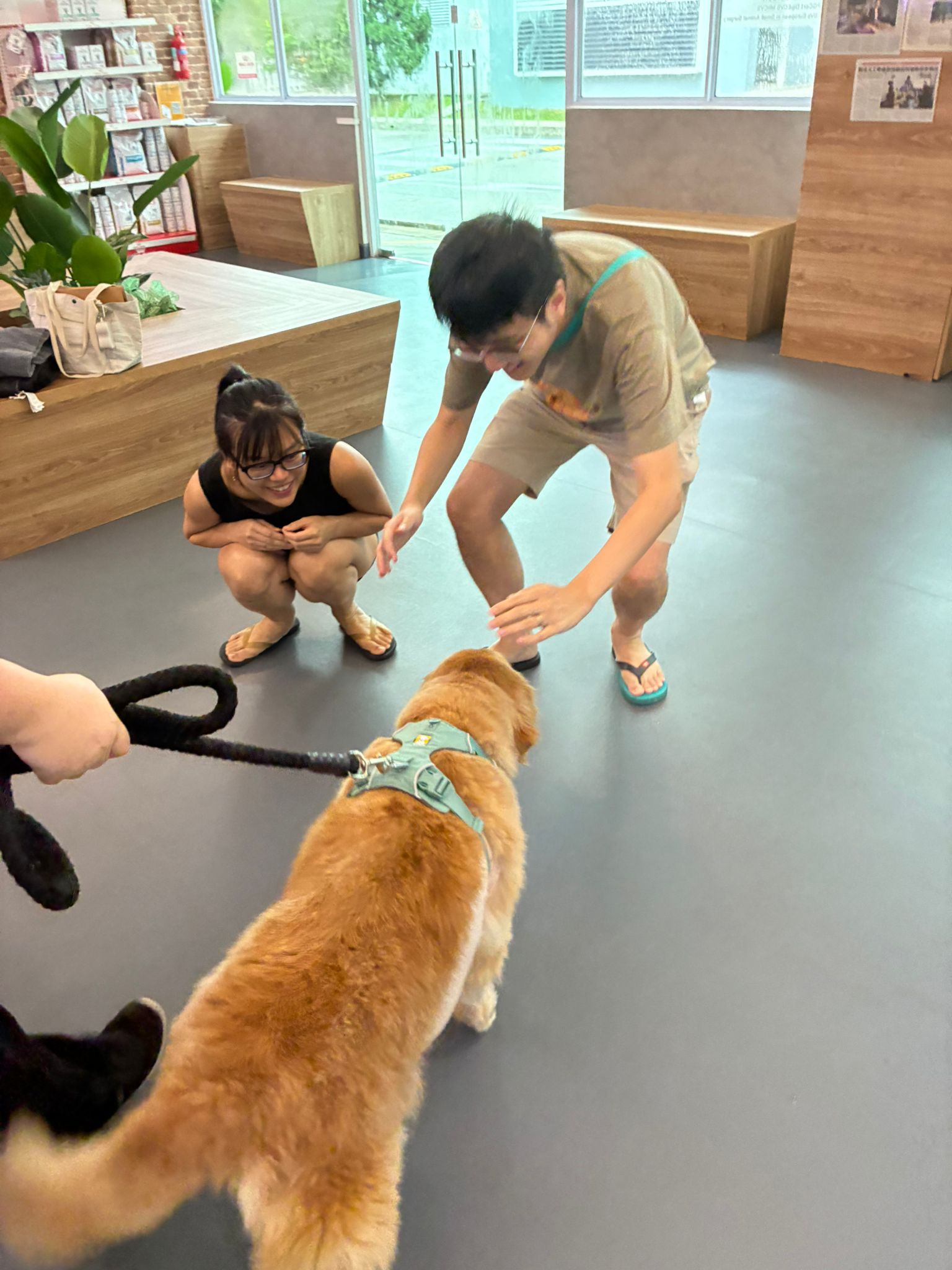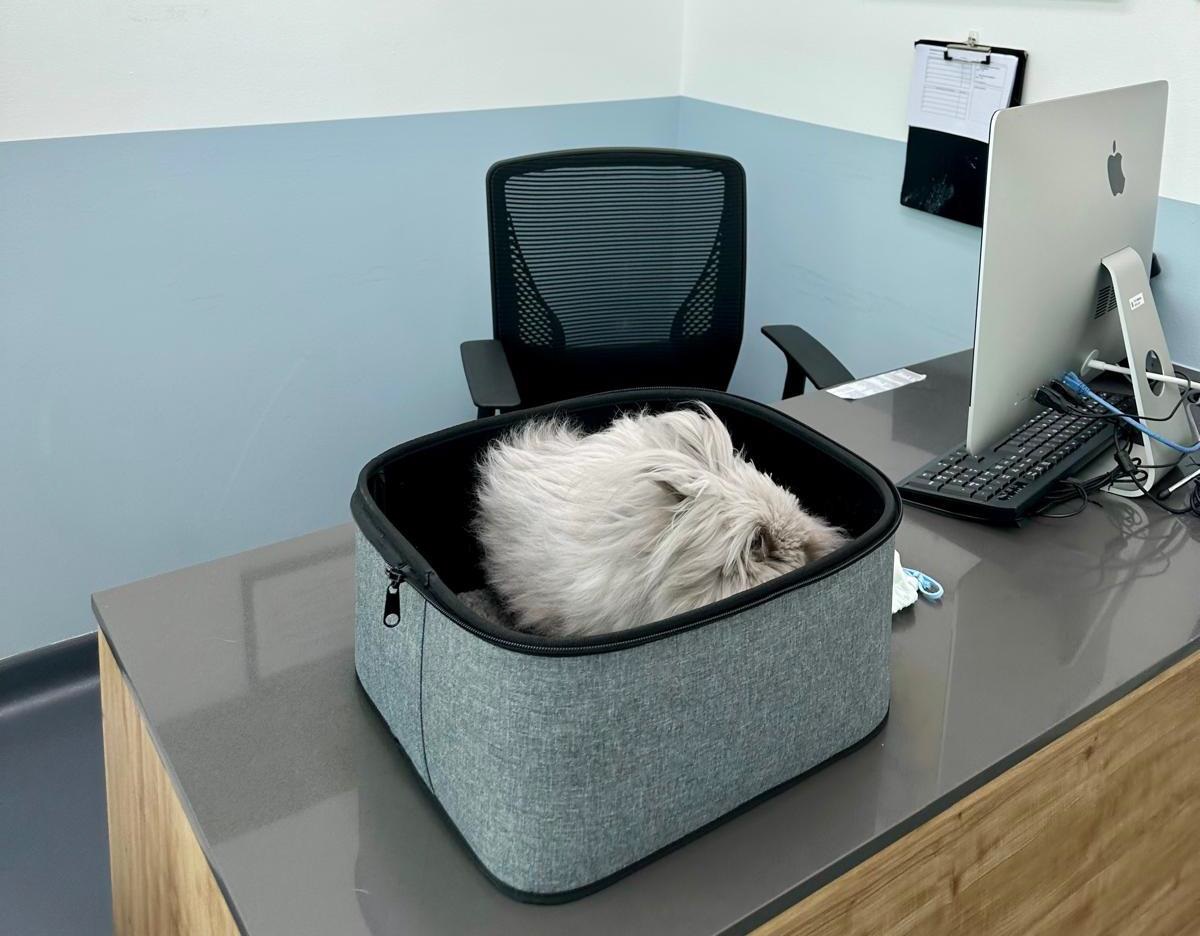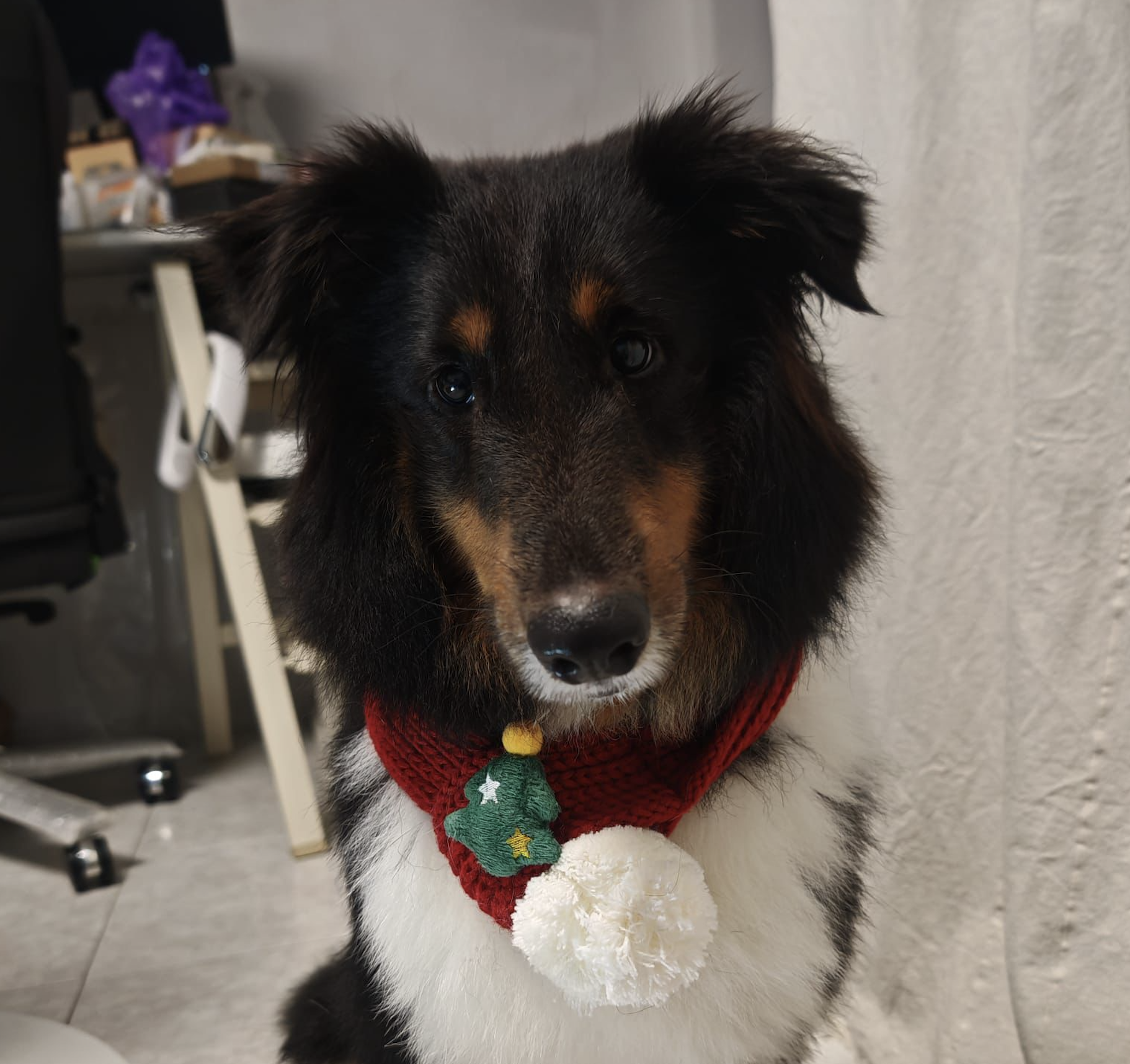A Playful Spirit and a Sudden Turn
Rose, a one-year-old Golden Retriever with a spirited, cheeky personality, brought immense joy to her family’s life. “She’s nothing like the calm and gentle Golden Retriever stereotype,” shared her owner, Ms Yang. “She’s mischievous, always pushing boundaries—and always the one breaking the rules.”
Her days were full of fun: morning and evening walks, tug-of-war with her canine sibling, and weekend outings to the beach. But what began as a typical evening stroll in late May quickly turned into a life-threatening emergency that tested the strength of Rose and the dedication of her family and medical team.

Collapse and Urgent Action
During that evening walk, Ms Yang noticed Rose panting heavily—more than usual. Foam began collecting at the corners of her mouth. Seconds later, her legs gave way. Panicked, Ms Yang and her husband rushed her to their regular vet, where they were told Rose’s heart rate was dangerously high and potential clotting issues were identified.
Realizing they needed specialised help, the couple rushed her to Beecroft Animal Specialist & Emergency Hospital. It was there that the severity of Rose’s condition became heartbreakingly clear.
A Critical Diagnosis: Heatstroke and Organ Failure
Upon arrival, Rose was barely responsive. She was struggling to breathe, her gums were pale, and her blood pressure was dangerously low. Blood tests confirmed that she had sustained injury to multiple organ systems.
“Rose was suffering from life-threatening heatstroke,” explained Dr Nadine Jones, Emergency & Critical Care Specialist at Beecroft. “It had affected her liver, kidneys, lungs, and blood-clotting system.”
The ICU team sprang into action. Rose was given fluids, oxygen, pain relief, plasma transfusions, and medications to support her blood pressure. Blood tests revealed severe liver damage and dangerously low platelet levels, increasing her risk of internal bleeding. Whilst in hospital she also required a feeding tube as she suffered from diarrhea and had lost her appetite. She required intensive nursing care from the ECC nurses to manage her temperature and keep her comfortable.
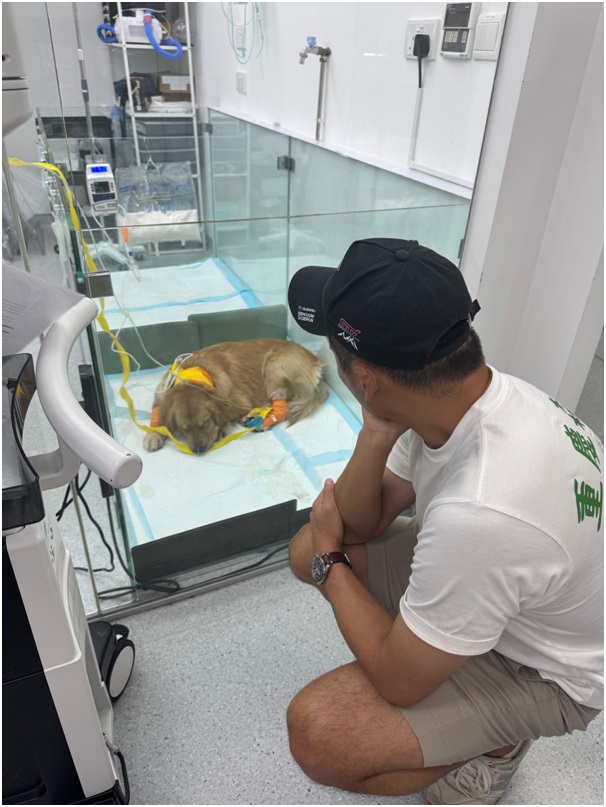
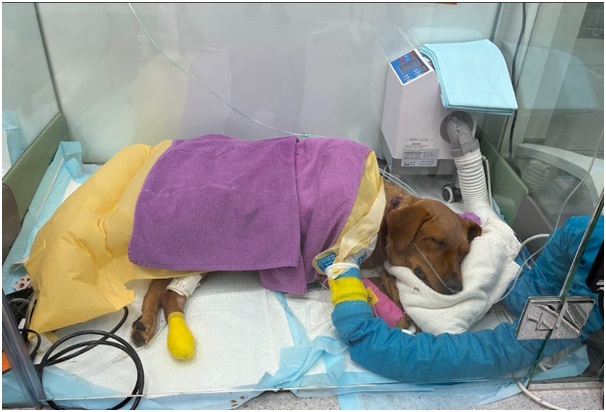
Rose under a warm air blanket as she struggled to maintain her temperature.
It was an uphill battle, with Ms Yang and her husband staying close to the hospital, fearful they would receive devastating news at any moment. Friends and family stepped in to care for their young son during this tense period.
“It was one of the hardest moments,” Ms Yang recalled. “Dr. Nadine explained everything clearly, and we could tell how committed the team was to saving Rose.”
A Hard-Fought Recovery
Miraculously, Rose began showing signs of improvement. After a week in the ICU, she was finally strong enough to go home.
“She was still recovering from anaemia and low platelets,” said Dr Nadine. “But she was breathing on her own without oxygen support and eating well.”
“She was weak at first,” Ms Yang added. “We only brought her out for short toilet breaks. But after about three days at home, her energy started coming back.”
Rose’s recovery included caring for a wound on her leg and managing her low platelet count. But the relief of having her home eclipsed all other concerns. “We were just so thankful she pulled through,” said Ms Yang.
Lasting Lessons and Lifestyle Changes
This traumatic experience left a deep impression on the family, who have since made lasting changes to Rose’s daily routine.
“Now we always walk her during cooler parts of the day,” Ms Yang shared. “We use cooling vests, carry water, and make sure she drinks before every walk. Heatstroke can happen so fast.”
Dr Nadine echoed this message, urging pet owners to stay vigilant, especially in Singapore’s warm and humid climate.
“Heat stroke is a medical emergency that can affect even young, healthy dogs,” she said. “Dogs rely on panting to cool down, and their systems can be overwhelmed quickly.”
Why Rose’s Story Matters
Rose’s journey is a powerful reminder of the importance of heatstroke awareness in pets. Here are key tips Dr Nadine shared:
Never leave your dog in a car, even briefly.
Avoid walking during the hottest parts of the day.
Always provide access to shade and fresh water.
Watch for early signs of overheating: heavy panting, drooling, restlessness, tremors, or collapse.
Begin cooling immediately if concerned—immerse the dog’s body in cold water, such as in the shower. Cool first, then transport immediately to an emergency clinic for assessment, even if the pet appears to have recovered.
“We’re so proud of Rose and so grateful to her family for their trust,” Dr Nadine said. “Early action and close monitoring saved her life.”
“We truly believe Rose wouldn’t have made it without the care she received at Beecroft,” Ms Yang added. “We’re forever grateful.”
Dr Nadine recently shared additional tips on preventing heatstroke in The Straits Times. Feel free to read and share this resource with other pet lovers:
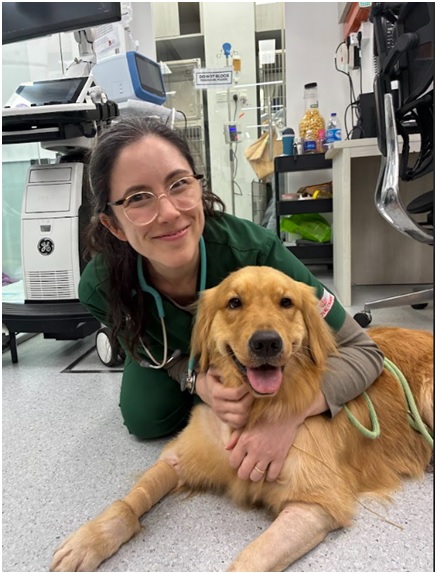
A Message of Gratitude and Hope
Today, Rose is thriving. She returned to Beecroft for a follow-up in early June—tail wagging and beaming with joy. Her story is one of resilience, love, and the life-saving power of early intervention and expert care.
By sharing this story, Ms Yang and Dr Nadine hope to raise awareness about heatstroke.
“Don’t underestimate the heat,” Ms Yang advises fellow pet owners. “Your actions could mean the difference between life and death.”
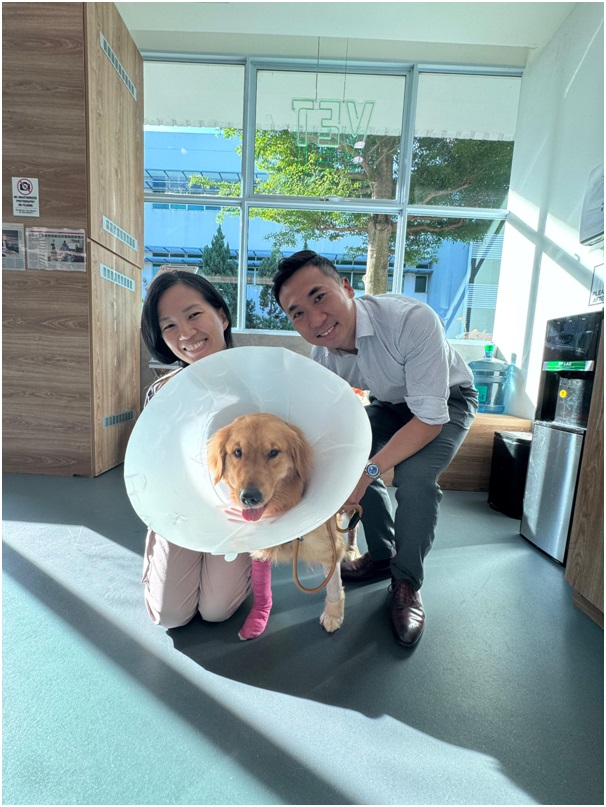

For referral, please reach us here.
